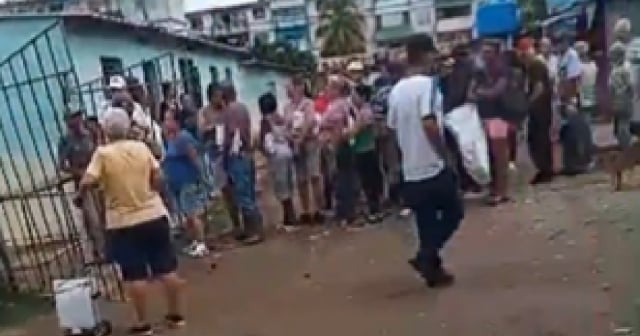In another series of statements highlighting the repressive policies in Cuba, the chief prosecutor of the People's Court in Havana, Lisnay Mederos Torres, has made declarations that reaffirm the Cuban government's stance on suppressing any behavior that, in their view, violates the established order.
In words that resonated through the official media outlet Canal Habana, the prosecutor emphasized that the Cuban people are "disciplined and resilient in the face of difficulties," but stressed that authorities will act "with full rigor and severity" to control any behavior deemed transgressive.
Mederos Torres emphasized the importance of respecting authority, noting that this respect should extend to all public officials, auxiliary agents, and any figure of authority acting under the mandate of the Defense Council.
"This is a moment when we have rights, but those rights cannot be exceeded. And we all have to fulfill the duties that come with being citizens," was one of the most noteworthy statements made by the provincial prosecutor from Havana.
Similarly, Mederos Torres referred to the crimes of assault, theft, robbery, and damage to essential economic infrastructure, such as the electrical system and public telecommunications. He emphasized the seriousness of these offenses in the current context, especially when they affect "assets of particular importance to the country's economy."
The Cuban Penal Code, in its Article 79, escalates the penalties in circumstances like these, which means harsher sentences for those who commit these offenses during times of crisis, he stated.
In recent days, various international reports have highlighted arbitrary prosecutions and detentions of citizens who express their dissatisfaction in public spaces or on social media, illustrating the use of the judicial system as a tool to reinforce state control and suppress any attempt at public questioning.
The repression of protests and the censorship of dissenting opinions have raised growing concerns about the lack of civil liberties in the country, especially at a time when social discontent appears to be on the rise.
Since the protests on July 11, 2021, the Cuban government has maintained a repressive response to dissent, using legal threats and the criminalization of dissenting acts as tools to deter social discontent. On that occasion, the Ministry of the Interior identified offenses such as shouting "Homeland and Life," a slogan that had become a symbol of resistance.
Likewise, the Attorney General's Office issued warnings in October 2021 about potential criminal sanctions for those participating in demonstrations, which demonstrates an effort to neutralize activism and discourage any form of public protest against the regime.
In October 2022, the Cuban Prosecutor's Office reiterated its threats, this time specifically aimed at those who were filmed or recorded during the protests that occurred after several days without water or electricity.
Filed under:
